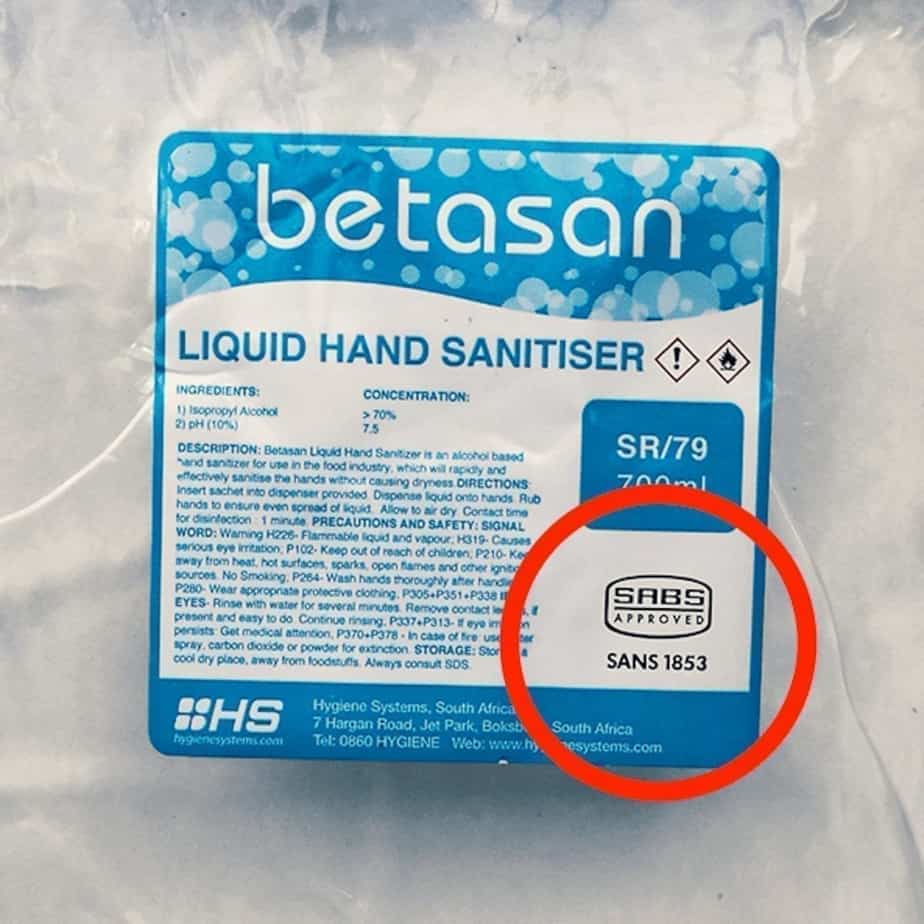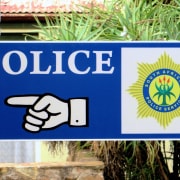|
Getting your Trinity Audio player ready...
|
By Thato Mahlangu
The South African Bureau of Standards (SABS) receives reports, almost on a daily basis, about manufacturers who have been advertising and/or selling essential Covid-19 protection products with the fraudulent use of the SABS mark. The SABS is tasked with verifying, approving and accessing the standards of products that are sold in the market.
The organisation has also referred consumer complaints to the National Consumer Commission who are mandated to investigate consumer complaints.
It has issued cease-and-desist letters to transgressors, and continues to monitor their activity. Apart from issuing these letters – about 16 so far – the organisation has reported two cases to the South African Police Service.
It also warns the public to report any essential products like hand sanitisers, disinfectants, and surgical face masks, which they suspect might have a fake SABS approval mark.
Jodi Scholtz, lead administrator at SABS, told Corruption Watch this week that the organisation is looking into a number of fraud cases that have been brought to its attention by customers complaining about the sale of these products under an unauthorised SABS approval mark.
Essential products must be tested
According to Scholtz, retailers have the duty to have these sanitisers and disinfectants tested by manufacturers before they are sold to them.
Scholtz said it was important for retailers to have essential products, which they would either sell or use on customers, tested beforehand. “They should insist on evidence of testing and certification of those products from manufacturers.”
Media reports have suggested that there are fake hand sanitisers, disinfectants and fake surgical masks on the market, which have the potential of doing more harm than good as they are not 100% safe to use. But unsuspecting customers and retailers have fallen victims to these unscrupulous manufacturers.
The organisation has issued a full list of approved essential products.
“Using untested products could be harmful to members of the public and the environment. We strongly advise that consumers avoid using untested products. Untested sanitisers can cause blistering, burning, respiratory problems and simply be ineffective in combating the virus,” Scholtz explained.
Products which are approved for use

The SANS 1853 mark. Image from We Clean Hands.
According to the SABS, the South African National Standards (SANS) has supplied them with the following information on SANS-approved hand sanitisers and disinfectants:
- SANS 490, published in 2013, is a specific standard that addresses alcohol-based hand rubs for the purposes of disinfecting.
- SANS 1853, published in 2009 and revised in 2017, provides the specifications for disinfectants, detergent-disinfectants, and antiseptics for use in the food industry. It is important to note that SANS 1853 also references SANS 490.
Like sanitisers, face masks also go through a thorough approval and certification process, which includes six national standards that provide masks for various uses:
- SABS 1866:2018 – medical devices part 1: medical face masks. This standard covers the minimum performance requirements for materials used in the construction of medical face masks, intended to limit the transmission of infective agents in the healthcare environment.
- SANS 50136:1998 – respiratory protective devices – full face masks – requirements, testing, marking. This standard sets the requirements for full faces masks for respiratory protective devices and excludes diving apparatus.
- SANS 50148:2003 – respiratory protective devices – threads (three parts). This standard has three parts and applies to standard threads for respiratory devices and breathing apparatus.
- SANS 50149: 2003 – respiratory protective devices – this standard specifies the requirements for filtering half masks as respiratory protective devices to protect against particles except for escape purposes.
- ITA1/WDED1: 2020– general purpose face masks – fabric type – this industry technical agreement (ITA) is currently being developed by various industry experts. An ITA will expedite the process as consensus by the industry is required, whereas a National standard requires consensus by all parties.
Scholtz said the organisation is able to conduct tests against some of these SANS where there is limited capacity and inadequate use of laboratories that fall within its partnership agreements.
The SABS certification and approval process
In order to carry the SABS approved mark, sanitisers will bear the SABS approved logo on the product and should have one or both the SANS 490 and SANS 1853 marks below the SABS logo.
“The mark can be affixed onto the bottle with a sticker or be imprinted on the bottle. The product must clearly stipulate the batch number, the expiry date, the ingredients and the percentage of the alcohol used,” Scholtz explained, adding that consumers are advised to check the certification status of companies on the SABS website where all manufacturers who are currently certified with the organisation are listed.








